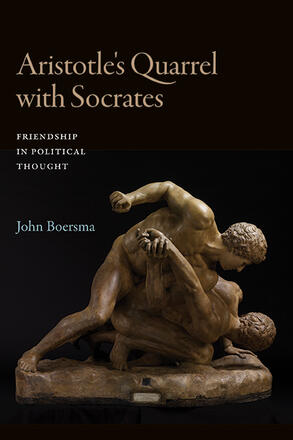
Aristotle's Quarrel with Socrates
Friendship in Political Thought
Alternative formats available from:
Makes the case that the different stances Aristotle and Socrates take toward politics can be traced to their divergent accounts of friendship.
Description
Aristotle's Quarrel with Socrates is an account of the role friendship plays in ancient political thought. Examining Platonic dialogues and Aristotle's ethical and political treatises, John Boersma makes the case that the different stances Aristotle and Socrates take toward politics can be traced to their divergent accounts of friendship. Aristotle's Quarrel with Socrates brings to the fore the tension that exists between the philosophic life as exemplified by Socrates and the life devoted to politics. It goes on to argue that Aristotle's account of a friendship of the good, based on human excellence, can reduce, not to say eliminate, this tension, enabling the development of a political community that is organized for action in history.
John Boersma is Postdoctoral Fellow in the Political Science Department at the University of Wisconsin-Madison.
Reviews
"In addition to providing rigorous and original interpretations of four important texts of Greek political thought, Boersma presents an encouraging resolution to the age-old friction between philosophy and politics: friendship. This pre-political concept, he powerfully argues, guides the relation of philosopher and statesman to work together in preserving a flourishing political culture. Clear and balanced, this book's arguments demand the attention of scholars who study these texts and ideas." — Michael Promisel, Catholic University of America